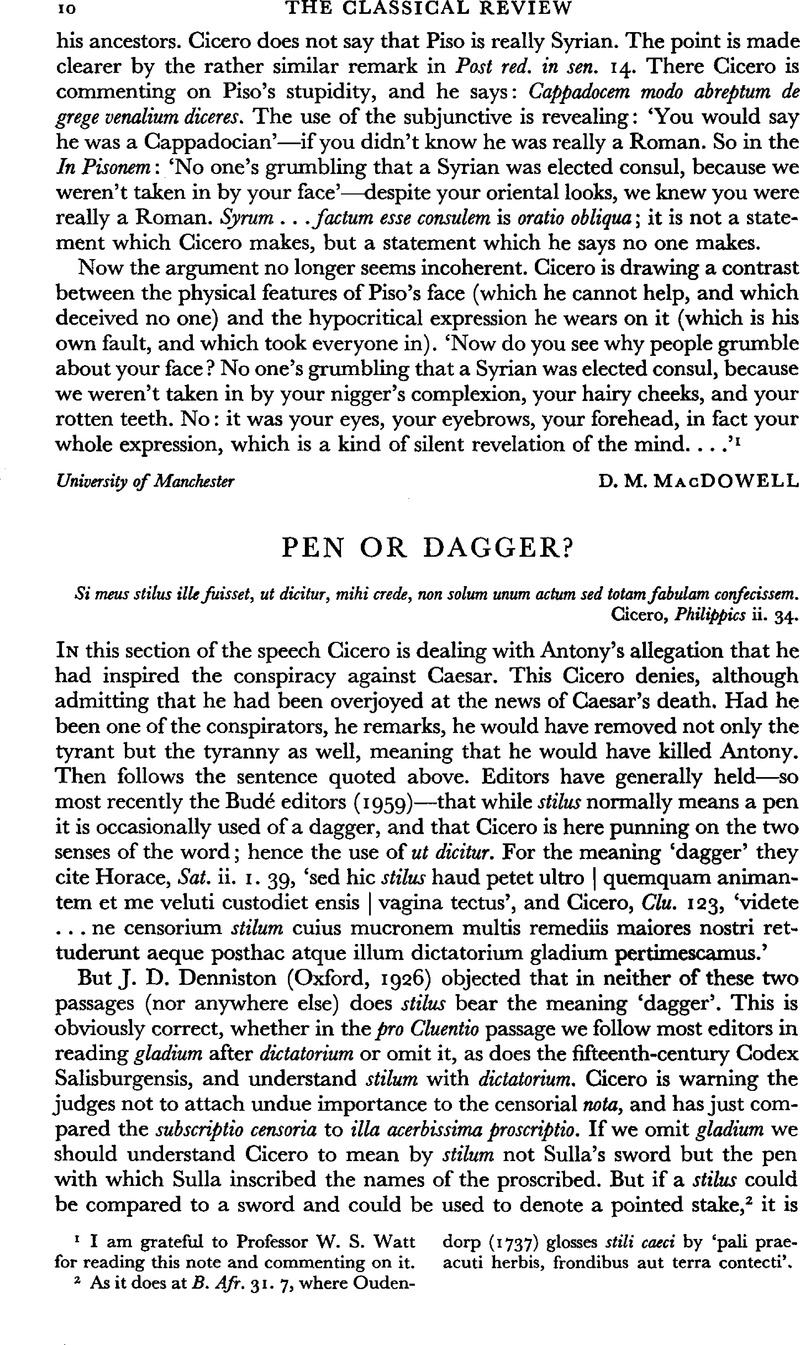No CrossRef data available.
Article contents
Pen or Dagger?
Published online by Cambridge University Press: 27 February 2009
Abstract

- Type
- Review Article
- Information
- Copyright
- Copyright © The Classical Association 1964
References
page 10 note 1 I am grateful to Professor W. S. Watt for reading this note and commenting on it.
page 10 note 2 As it does at B. Afr. 31.7, where Oudendrop (1737) glosses stili caeci by ‘Pali Praeaciti herbis, frondibus aut terra contecti’.
page 11 note 1 The proverb is given more fully at Mur. 25, ‘inventus est scriba quidam, qui cornicum oculos confixerit…’. The crow is said to have been noted for its watchfulness and for its habit of pecking out people's eyes. Hence the phrase is used proverbially for taking in the most wary; editors compare the English ‘catching a weasel asleep’.
page 11 note 2 The translations are all taken from the Loeb editions. For the numerous examples gradain Cicero's philosophical works see T.L.L. v. 988–9, s.v. dico. Without exception they show ut dicitur used with proverbial expressions; see the commentators ad locc. Particularly noteworthy is Leg., iii. 36, ‘excitabat enim flatus in simpulo, ut dicitur, Gratidius’, ‘G. raised a storm in a wine-ladle’, or, as we would say, ‘a teacup’.
page 11 note 3 This example is included by Otto, Sprichwörter, s.v. stilus (no. 1691). For the proverbial use of ut dicitur see J. S. Reid on Am. 19 (or Acad.i. 18), where he also mentions the use of quod dicitur and the more common ut aiunt. Compare also Krebs, Antibarbants, i2. 439, and R. G. M. Nisbet on Pis. 69.
The use of ut dicitur seems to be almost confined to Cicero. It occurs elsewhere certainly only at Pliny, Ep. viii. 2. 8, ‘quos non una, ut dicitur, pertica, sed distincte gradain timque tractavi’. The text of Petronius 25, where ut dicitur is expressly said to denote a proverb, is doubtful.
page 11 note 4 If it had been a proverb, Cicero would, I think, have written ‘si stilus ille, ut dicitur, meus fuisset’.
page 11 note 5 It is significant that in no other instance does Cicero use ut dicitur with actus.
page 12 note 1 We might also compare Verr. iv. 117, ‘urbem Syracusas maximam esse Graecarum, pulcherrimam omnium saepe audistis. est, iudices, ita ut dicitur.’


